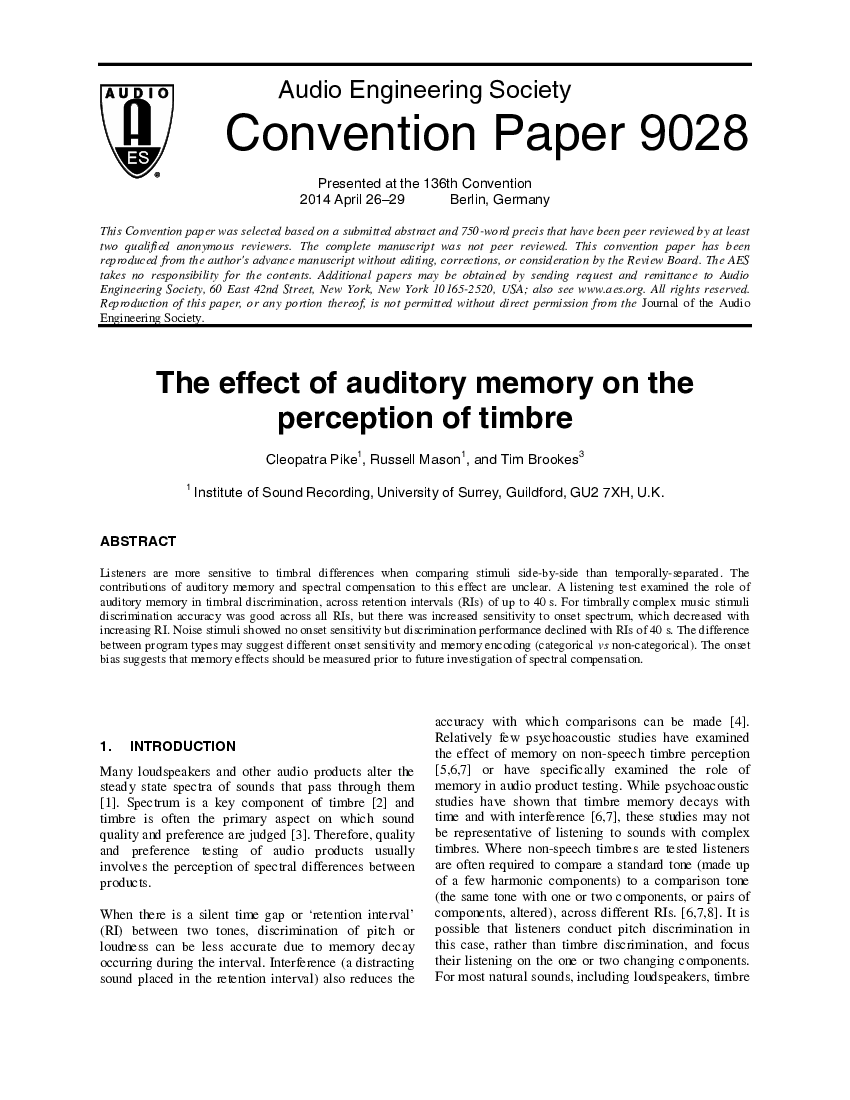Home / Publications / E-library page
You are currently logged in as an
Institutional Subscriber.
If you would like to logout,
please click on the button below.
Home / Publications / E-library page
Only AES members and Institutional Journal Subscribers can download
Listeners are more sensitive to timbral differences when comparing stimuli side-by-side than temporally-separated. The contributions of auditory memory and spectral compensation to this effect are unclear. A listening test examined the role of auditory memory in timbral discrimination, across retention intervals (RIs) of up to 40 s. For timbrally complex music stimuli discrimination accuracy was good across all RIs, but there was increased sensitivity to onset spectrum, which decreased with increasing RI. Noise stimuli showed no onset sensitivity but discrimination performance declined with RIs of 40 s. The difference between program types may suggest different onset sensitivity and memory encoding (categorical vs non-categorical). The onset bias suggests that memory effects should be measured prior to future investigation of spectral compensation.
Author (s): Pike, Cleopatra; Mason, Russell; Brookes, Tim
Affiliation:
University of Surrey, Guildford, Surrey, UK
(See document for exact affiliation information.)
AES Convention: 136
Paper Number:9028
Publication Date:
2014-04-06
Import into BibTeX
Session subject:
Perception
Permalink: https://aes2.org/publications/elibrary-page/?id=17175
(387KB)
Click to purchase paper as a non-member or login as an AES member. If your company or school subscribes to the E-Library then switch to the institutional version. If you are not an AES member Join the AES. If you need to check your member status, login to the Member Portal.

Pike, Cleopatra; Mason, Russell; Brookes, Tim; 2014; The Effect of Auditory Memory on the Perception of Timbre [PDF]; University of Surrey, Guildford, Surrey, UK; Paper 9028; Available from: https://aes2.org/publications/elibrary-page/?id=17175
Pike, Cleopatra; Mason, Russell; Brookes, Tim; The Effect of Auditory Memory on the Perception of Timbre [PDF]; University of Surrey, Guildford, Surrey, UK; Paper 9028; 2014 Available: https://aes2.org/publications/elibrary-page/?id=17175